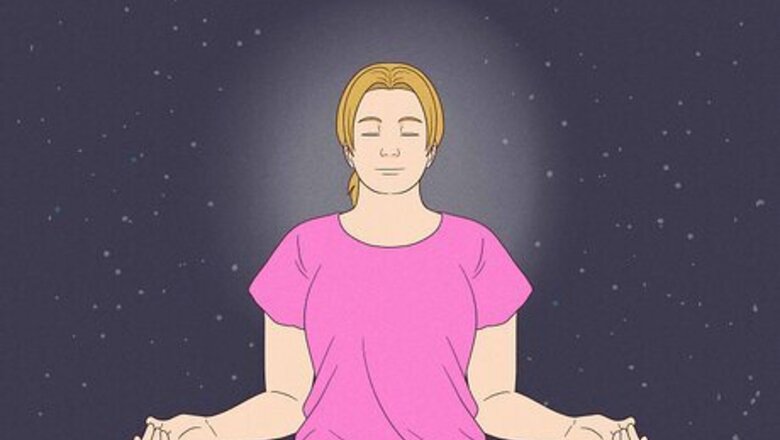
views
What does it mean when your thumb is itching?

An itchy right or left thumb may be a sign of spiritual development. Generally, an itchy thumb means you’re getting closer to enlightenment. It’s a reminder to focus on your spiritual journey and seek deeper connections to the divine. Whether it’s through meditation, prayer, or religious services, find ways to grow spiritually and fulfill your soul’s purpose in life. The tip of the left thumb is connected to the heart chakra. If it starts to itch, your guardian angels could be encouraging you to expand your spiritual knowledge. If the tip of your right thumb itches, it could be a sign that you’re reaching a higher vibration. It’s a reminder to follow your intuition and push forward, despite any difficulties along the way.
Itchy Right Thumb Superstitions
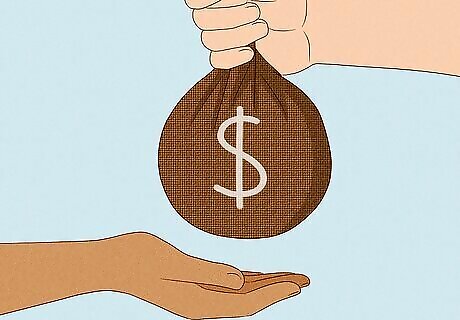
Good fortune is heading your way. If you’ve been struggling financially, an itchy right thumb could be a good omen for wealth. It means someone is about to pay you, so look out for an unexpected check in the mail, a bonus or new opportunity at work, or a huge return on your investment. What to do: Buy a lottery ticket, invest your money, or ask for a promotion—an itchy right thumb is a positive sign of luck and prosperity!

A major change is on the horizon. When your right thumb begins to itch, it might be a sign that something huge is about to happen. This could look like switching careers, moving to a new city, or dealing with an unexpected loss. Whatever the case may be, evaluate what’s important in your life and prepare yourself, both mentally and physically, for potential change. What to do: Adopt a positive mindset and work on managing your emotions. While you can’t predict what’s to come, you can cope with change by controlling your reaction to it and learning to let go of things.
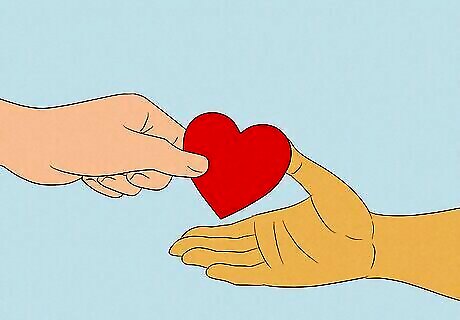
It’s time to be mindful and present. Many people believe an itchy right thumb is a reminder to express gratitude for everything you own. It’s easy to get caught up in work or school, so take a moment to appreciate your health, relationships, and all the opportunities in your life. What to do: Meditate, practice deep breathing exercises, or perform a random act of kindness to be more mindful. Get off of your phone, step outside, and focus on your surroundings to be more present in daily life.
Itchy Left Thumb Superstitions
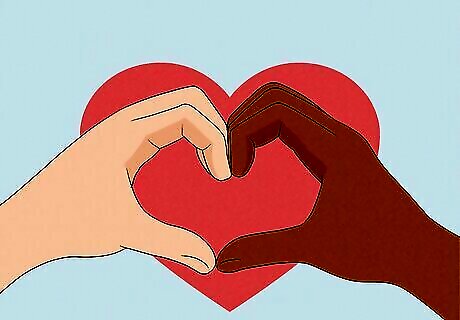
Love is just around the corner. An itchy left thumb is considered a positive omen for romance—someone special might enter your life soon. It signifies you’re ready to be in a relationship, so don’t be afraid to put yourself out there. It’s the perfect time to make new connections and open yourself up to love! What to do: Think about your ideal partner and have fun meeting new people—use dating apps, take classes, or ask friends if they know anyone who might be a good match for you.
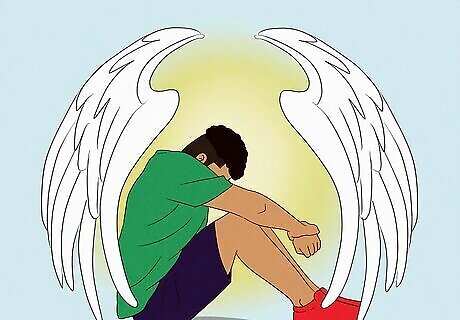
You’re divinely guided and protected. If you’re going through a tough time, an itchy left thumb might mean your guardian angels are watching over you. Think of it as reassurance that everything will be okay—as long as you trust in the divine plan, you can overcome any obstacles life throws your way! What to do: Talk to a trusted friend, family member, or therapist to release negative emotions, or write down your feelings in a journal. To ward off negative energy, burn sage, carry protective crystals, and declutter your space.
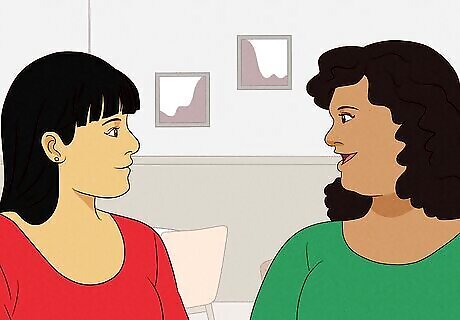
You need to improve your communication skills. The base of the thumb is linked to the throat chakra. So, if it itches, it might be a sign to open up and actively listen to others. Someone might be trying to reconnect with you or make amends, so don’t be afraid to make the first move. By reaching out and expressing your feelings, you can determine if you want to continue the relationship. What to do: Maintain eye contact while speaking to someone and give them your undivided attention. If you’re trying to resolve a conflict, use “I” statements to share your point of view, instead of blaming the other person for their actions.
Medical Reasons for Itchy Thumbs
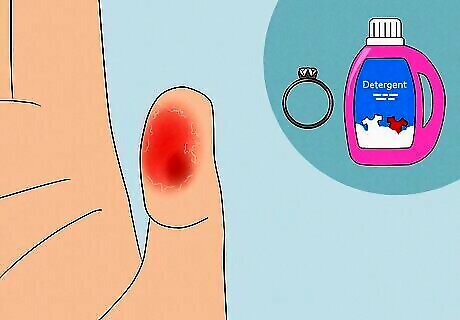
Contact dermatitis Also called contact eczema, contact dermatitis occurs when you touch something that irritates your skin, causing itchiness, pain, dryness, redness, and/or inflammation. Common triggers include fragrance, metal jewelry, hand cream, or household products. How to treat it: Apply antihistamine or corticosteroid cream over the affected area, or take an oral over-the-counter medication to relieve itching.
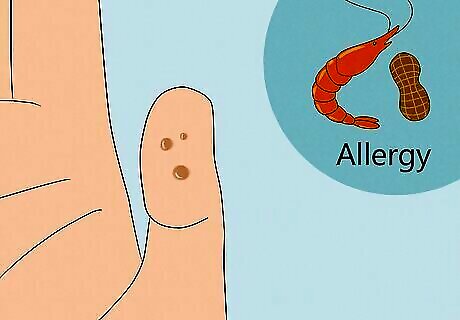
Dyshidrotic eczema Also known as foot-and-hand eczema or pompholyx, dyshidrotic eczema causes small, itchy, fluid-filled blisters on your hands, fingers, toes, or feet. The exact cause is unknown, but it’s often associated with allergies, excess sweating, and an overactive immune system. How to treat it: Use warm water when washing your hands, instead of hot water, and make sure your hands are thoroughly dry. Soak your hands in cool water or apply a cold compress to relieve itching.
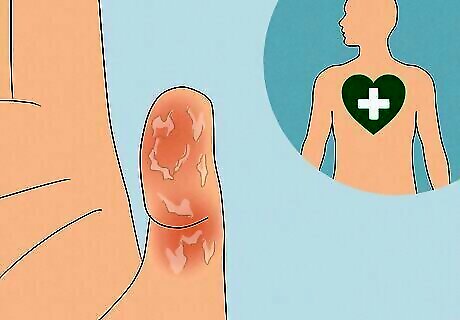
Psoriasis This chronic autoimmune disease causes a rapid buildup of skin cells, resulting in a rash with itchy, scaly patches. The condition tends to appear in cycles, flaring for a few weeks or months, before subsiding for a while. There’s so cure for psoriasis, but there are lots of options to help manage your symptoms. How to treat it: Apply a corticosteroid or salicylic acid cream, or a product containing retinoid or a vitamin D analogue, over the affected area. Alternatively, try light therapy, or ask your healthcare provider for oral or injected medications.
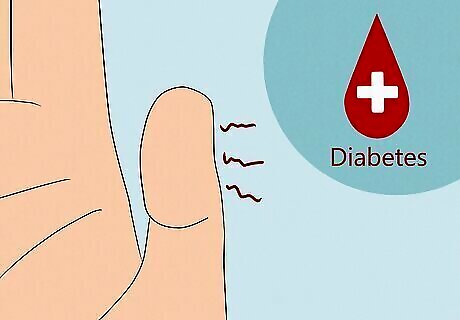
Diabetic peripheral neuropathy If you have been diagnosed with diabetes, your thumb might itch because of peripheral neuropathy—a type of nerve damage caused by high blood sugar levels. This usually affects the hands and feet, causing sensitivity, numbness, pain, or weakness in your fingers. How to treat it: Manage your blood pressure and keep your blood sugar levels within your target range. Make lifestyle changes, like exercising regularly and eating healthier foods. Alternatively, apply capsaicin cream onto the affected area.
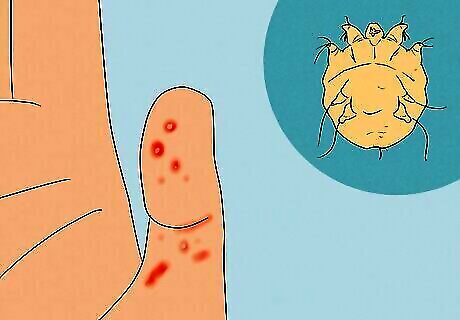
Scabies This contagious disease occurs when tiny mites (Sarcoptes scabiei) burrow into your skin and lay eggs, causing small and itchy bumps. The mites usually burrow in areas where your skin folds, like between your fingers and toes. How to treat it: Visit your primary healthcare provider to get a prescription cream or pill, such as permethrin cream, sulfur cream, or Ivermectin.
When to See a Doctor for Itchy Thumbs
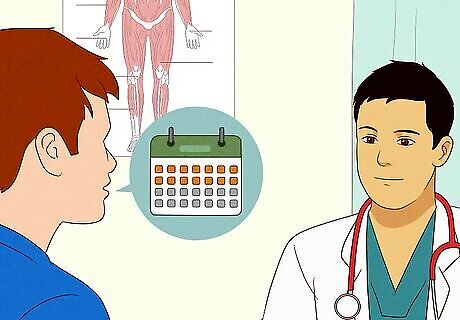
Visit your doctor if the itch doesn’t go away in 2 weeks or gets worse. While an itchy thumb is usually not a cause for concern, it may be a sign of a serious condition that can only be treated with a prescription. See your primary care doctor if you experience an intense itch with any of the following: Rash Hives Blisters Silvery-white scales Burning or stinging skin Redness or inflamed skin Bleeding or cracking of the skin


















Comments
0 comment